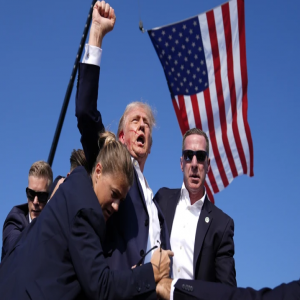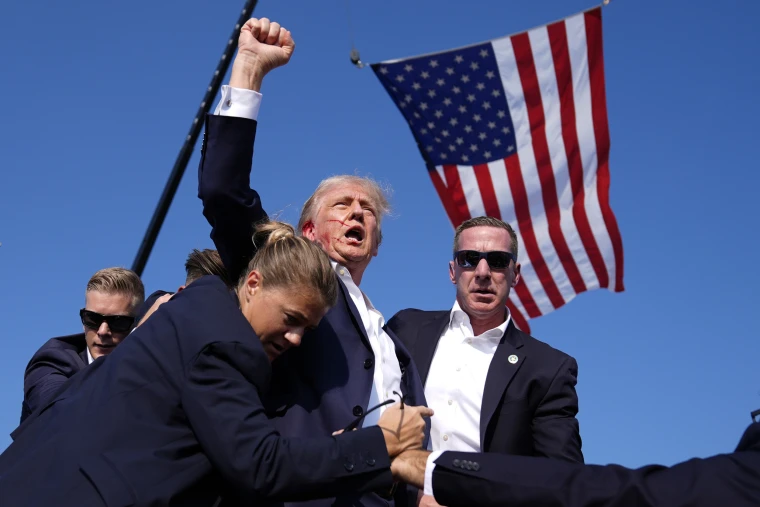
 A. J. Philip
A. J. Philip

I was an impressionable 10-year-old when US President John F. Kennedy was assassinated in 1963. It made a lasting impression on me. Perhaps the assassination of Mahatma Gandhi had not impacted me as much because I was just an idea in the minds of my parents when Godse shot the Father of the Nation at close range at Birla House on January 30, 1948.
One of the first things I did upon reaching Delhi in 1973 was to visit the Gandhi Memorial. The closest I had come to Gandhi was when I read his autobiography and visited the mobile Gandhi museum that came to Pathanamthitta in Kerala during Gandhi's birth centenary in 1969.
I have vivid memories of the assassinations of Indira Gandhi on October 31, 1984, and her son Rajiv Gandhi on May 21, 1991, as I had journalistic assignments to do on those days. Nonetheless, the assassination of Kennedy was a favourite subject for me. I read whatever was available on the subject then and thereafter. I was familiar with all the conspiracy theories.
One of the reasons why it influenced me so much was because Kennedy was young, handsome, and allegedly close to Jawaharlal Nehru. When I visited Dallas in the US, where he was grievously shot, I wanted to visit the spot but couldn't, as I had many engagements that kept me busy. Yet, even today, sixty years after the incident, I still read about the Kennedy assassination.
Political assassinations are as old as that of Roman Emperor Julius Caesar in 44 BCE. It allowed a senior journalist and critic of Rajiv Gandhi to write a column on the assassination without even referring to him. What's worse, he boasted about his achievement in private. Who remembers that man who laughed at the violent death of a gentleman who sent his party's leader to the USA for treatment?
Here is a dichotomy I would like to dwell upon. The first country Narendra Modi chose to visit in his third term as prime minister was Russia. He was received by Vladimir Putin at his dacha, his private residence. The Indian and Russian governments may be close, but when it comes to people, Indians are closer to Americans than anyone else.
It was in the USA, not the USSR, that Modi stayed during the Emergency. Likewise, it was to the US that CPM leader Kodiyeri Balakrishnan and Chief Minister Pinarayi Vijayan went when Communist leaders claimed that Cuba has the best Medicare system in the world. With globalisation, Indians are more connected to Americans than to Russians and Chinese.
American elections are, therefore, keenly watched in India. I know an editor who had a long career in the profession who said Americans would never elect Barack Obama because he is black and has Muslim blood in his veins. The fact is that he had two terms as President, and his presidency is considered one of the best. As a person, he commands the respect of everyone.
The election scene in the US would have been different if the young Republican who aimed at Donald Trump at Butler, Pennsylvania, on July 16, had been a little sharper. The Times of India was really playing with words when it headlined the story "Donald Trumps Death." Of course, it must have confused many who did not know that the verb "trumps" also means "to outrank or defeat someone or something, often in a highly public way." Suddenly, the Republican nominee earned a lot of sympathy.
In India, the sympathy caused by the assassination of Indira Gandhi helped her party win a spectacular victory at the hustings in 1984. The Americans may not be as emotional as Indians, but they, too, could have been influenced by Trump's narrow escape. In any case, he was "winning" against the incumbent President and Democratic nominee Joe Biden. In the first debate, the two had suggested that Biden would not be able to stop the Trump bandwagon from reaching the White House.
While I have my favourites in American politics, it is difficult to classify me as either a Democrat or a Republican. For instance, the American president whom I admire the most is Abraham Lincoln, the 16th President. I admire him for many of his qualities. There are many quotations attributed to Lincoln. The one I like the most is "Democracy is a government of the people, by the people and for the people."
Lincoln was not very successful in his early life. In fact, his life was a series of failures. He failed in business, embracing bankruptcy in 1831 and in 1834. He lost his sweetheart in 1835. He lost all elections he contested: for the legislature in 1832, for the US Congress in 1843 and 1846, for the US Senate in 1855 and 1858, and for the US Vice-Presidency in 1856. Finally, he was elected US President in 1860. In between, he had a nervous breakdown, too.
He is considered one of the greatest, if not the greatest, presidents. Incidentally, he was the first Republican president. Kennedy was a Democrat. Among the great Republicans was Ronald Reagan, who had an apartment in Hollywood, which my guide pointed out to me.
When Prime Minister Manmohan Singh visited Tokyo, he was told that former US President George Bush was staying in the same hotel. He expressed an interest to visit him, and the wish was granted. They had a brief meeting which I reported for The Tribune. Both the Bushes were Republicans. When I quit the NGO Deepalaya, my colleagues gifted me Obama's memoir titled "A Promised Land." He is a Democrat.
It was apparent to one and all that if the contest was between Biden and Trump, there was no hope for the former. Age was certainly not on Biden's side, and it was not that Trump was young; he is pushing 79. Between the two, Biden was older. I wondered why he was unable to see that he was leaving the presidency as if on a platter to Trump.
Fortunately for the Democrats, Biden realised that he had crossed his "expiry" date and could not contest with any measure of success. The only thing he could have done was to withdraw from the contest. And that is what he did with just a little over 100 days remaining for the election.
While asserting that he would remain president till January, Biden endorsed Vice-President Kamala Harris as the presidential nominee. Nobody claims that she is a great choice. However, she has luck on her side. If Biden had quit the race earlier, she would have faced primaries and could have even been rejected.
Four years ago, she did not present herself as a convincing candidate who could win on her own strength. In fact, she lost out at an early stage until she was chosen as Biden's running mate. As Vice-President, her performance has been nothing outstanding. In the American scheme of things, the VP does not have an independent role to play, though it is jokingly said that she is just a breath away from the Presidency.
That she is Black and has South Asian, nee Indian, origin is a plus point. Within three days of the endorsement, she earned the support of nearly 2,500 delegates, when she needs only less than 2,000. There is no one in the Democratic Party to oppose her. She also inherited a huge sum of campaign money.
Harris claimed that as an attorney, she had chased "fraudsters" and "criminals," alluding to the fact that Trump is a convicted felon. She does not know that calling names will not fetch her votes. She has many advantages, which she should emphasise to put Trump on the defensive. At 79, Trump is the oldest person ever to contest the presidential election. She is a generation younger than him.
One problem with her is that she is identified too much with Biden, making it difficult for her to distance herself from the failures of his presidency. Inflation is something that worries most Americans, especially the poor, who find that many good things in life are going beyond their reach. The failure of the Biden administration to stop the inflow of illegal immigrants is something she will have to address.
All said and done, one thing is clear. The election, which was going one-sided, has been given a new direction. Kamala Harris has instilled hope among the people that Trump can indeed be defeated. As the Economist puts it, "Mr. Trump, having survived an assassination attempt, enjoys an unshakable hold on his party. And yet his campaign's attempt to redefine him as a unity candidate at the Republican convention crumbled with his rambling and mean-spirited acceptance speech. That makes him beatable."
Much will depend on who Harris picks as her running mate. Will he be someone who can instill confidence, like a senator from a large state with enough clout? She does not have much time. As of now, Hillary Clinton has endorsed her. If Obama comes forward to endorse her, it will mean a lot for her candidacy.
I began this column with a reference to Abraham Lincoln. If Trump wins the election, the White House will witness a man with facial hair after a long time. My reference is to his vice-presidential nominee, JD Vance. Trump has never sported a beard, but he does not have any aversion to Vance keeping a stubble. In fact, Trump is reported to have complimented him by saying that he looked like Abraham Lincoln in his youth.
At 39, Vance is 40 years younger than Trump and 20 years younger than Harris. When I heard that he was nominated by Trump, I bought his autobiography titled "Hillbilly Elegy" and started reading it. Vance was nobody when he published the book at age 31. Yet, the book was a huge success. That is what astonished me.
When I read the book, I realised why it became a bestseller. The publishers are having a great time as the demand for the book would have skyrocketed after his nomination. Let me confess, it is a good read.
Vance is a white American, but he does not represent the average, privileged white American. His childhood was pathetic. His father had walked out on his mother, who herself had walked out on many men. Finally, it was left to his grandparents to bring him up. Ordinarily, such a boy would not have had the kind of Ivy League education that Vance had. He did not blame destiny for what he suffered.
He used the good health he was endowed with to earn a good income as a worker. He used money wisely, investing in his own education. He fell in love with a girl of Indian origin, Usha Chilukuri, with whom he has three children. If ever there is a self-made man, it is JD Vance.
Vance should be able to complement Trump. He is a latter-day Catholic who actually represents the core constituency of the Democrats. He can, in fact, attract votes from sections which have remained away from the Republican Party.
However, there is one problem with Vance. He is more a social media critic than a political leader. When reports came that Trump was attacked, he immediately commented that Biden was to blame, little knowing the true facts. Once he described Trump as an "asshole" and compared him to Hitler. He does not care what happens to Ukraine. He believes that Ukraine should cede most of its territory to Russia.
On the plus side, he is a good speaker whose family values are impeccable and contrary to his political boss'. One thing is for certain, whether it is Trump or Harris who makes it to the White House, the Indian imprint will surely be there. It is curry time again in the US!